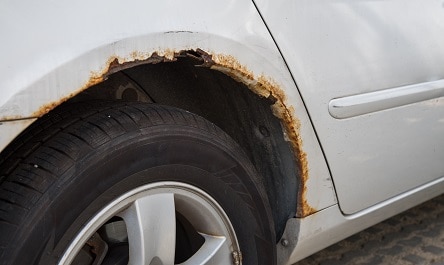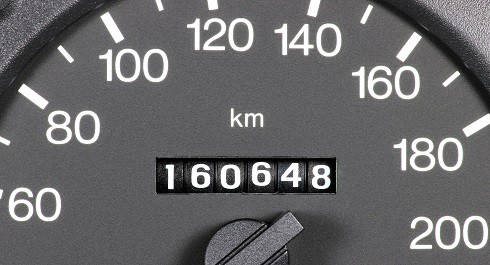Although many box vans may provide reliable service for as much as 350,000 miles, cargo vans, in the past, have reliably done 150,000 miles. In reality however, many vans last for as long as 250,000 miles or longer and do more miles to the gallon, so buying a 150 000 mile van should be fine
If you are considering buying a van, you will want to know how many miles it can reasonably be expected to last you for. This is not just the case when buying a new van as it is perhaps even more important if you are buying a used van.
Box vans, often referred to as trucks, can usually carry higher payloads than cargo vans. Cargo vans however provide better mileage per gallon.
As cargo vans become increasingly more popular, the different models are becoming bigger and also becoming almost as reliable as box vans for an extended number of miles.
Reliability
Vans like any other type of vehicle, are only reliable to their best if they are driven and maintained correctly.
This does not only mean that you service them on time, but also they are serviced by professionals to time as well.
When buying a new van a list of service schedules will be provided, and for maximum reliability, that schedule should be adhered to.
You may not receive a schedule if you buy a used van, but a list of its servicing records should be provided on request. You can then check the service records online to see if it complies with the recommended services from when it was new.
Factors Affecting a Van’s Reliability at High Mileages

Regular Maintenance
All vehicles should be maintained and serviced at regular intervals. Not only is it recommended for vans, but if your van is considered to be a commercial vehicle, it is mandatory, and records of maintenance must be maintained.
Obviously if you buy a new van, there will not be a record of maintenance, but it should come with recommendations for future maintenance timings.
If you are buying a used van and it has been used as a commercial vehicle, the previous owner should have a record of the timings and maintenance prior to you buying the van.
Provided any previous owner and you carry out recommended maintenance at the appropriate times, your van should provide maximum longevity.
Correct Driving Practices Makes It Last Longer
How you drive your van will impact the length of reliable service you can expect from it.
A van is not a car and certainly not a sports car, so should be driven in a different way to what you would drive a car.
Larger box vans handle differently from a car, but while cargo vans may handle similarly to a large SUV, it is not an SUV and so should be driven in a similar way to larger vans.
When fully loaded, vans can be heavy, and this means they will need a further braking distance than lighter vehicles would need.
When a van is empty, its solid sides can make it prone to drifting during strong winds.
These two factors mean that any time you drive your van, you should do so at slower speeds than you would possibly drive a car. It means you should also keep a longer distance between you and any vehicle in front.
Incorrect Tire Pressures Wear the Van Out Faster
Correct tire pressures are important to any vehicle not just vans.
The tire pressures of the wheels on your van should be checked regularly as incorrect pressures could lead to less mileage per gallon and also affect the total overall mileage of the van.
Incorrectly Loading A Van Will Strain it
To maintain the ultimate efficiency and longevity of your van, you should always ensure it is loaded correctly and within its recommended capacities.
Any van will have a Gross Vehicle Weight Ratio (GVWR), which is the maximum weight it should weigh when fully loaded. This figure comprises the weight of the van when empty plus its total payload, and exceeding this figure may cause damage to the van as well as affecting both its safety and efficiency.
The GVWR is also a sum of any axle weights. This means that as well as ensuring the payload is not exceeded, none of the axle weights should be exceeded either.
Box vans can only be loaded from their rear door, and so this means hauling the load down the length of the truck if necessary.
As cargo vans have a side door as well as rear doors, many people believe they are easier to load in a way that more evenly distributes the weight of the payload.
City and Highway Driving
Providing you drive your van in a way it was intended whether you drive in an urban environment or on highways it should not affect the overall reliability of the van. Neither should it affect the total mileage the van can be expected to last without needing extensive repairs.
What will be affected by where you drive your van, however are the miles per gallon it can be expected to provide.
When a van is new, manufacturers usually provide an estimate of a minimum number of miles it should achieve before major repairs are required and also what MPG should be expected. These stated figures are arrived at by estimating that the van will be driven in a combination of 50/50 urban and highway driving.
When buying a second hand van, it is the total miles the van has been driven, how well it has been maintained and how it has been driven, which are important, not necessarily where it has been driven.
How Many Years will your Van Last
When manufacturers provide an estimated longevity of a van, they will say a certain number of years or a certain number of miles. This means that it is not really a matter of how many years old the van is, but rather how many miles has it been driven.
This is important to know when buying a used van. It is also important for you to have an estimate of how many miles you are likely to drive your van each year.
A van is often a huge investment for either a business or an individual, and so it is imperative to know how often you will have to make that investment. To get the best guide to this, you should divide the total number of miles a manufacturer stated the van should last by the number of miles you expect to drive annually.
Older Vans Can Have Rusty Bodywork

Most modern vans today are reliable, and as long as they are driven and maintained properly should provide an efficient service for as long as the manufacturer’s state.
As well as the points noted above, one other factor should be considered when buying a used van, and that is the state of its body.
Rust will eventually affect every vehicle, but that is a case of how many years old the vehicle is, instead of how many miles it has been driven. Although many modern vans have bodywork which will last as long as its engine, this is not always the case with older vans.
When buying an older used van, you should therefore look for possible signs that rust hasn’t already set in.
This will mean looking for different tints in colors on parts of the van indicating repairs to the body work have occurred.
Other places which are worth checking are the insides of the door frames for any signs of rust. If a van’s body does start to rust usually the first signs of this are on the door frames. Open the doors and inspect the inside of the frame for any signs of rust or recently added paint.
Conclusion
Vans have traditionally been designed as powerful workhorses and as such, if driven and maintained correctly, will outlast most cars.
The modern technology used in the manufacturing of a new car allows it to last longer than they used to. However the same technological improvements are also being applied to vans, and so they will still last longer and travel further than most modern cars.


